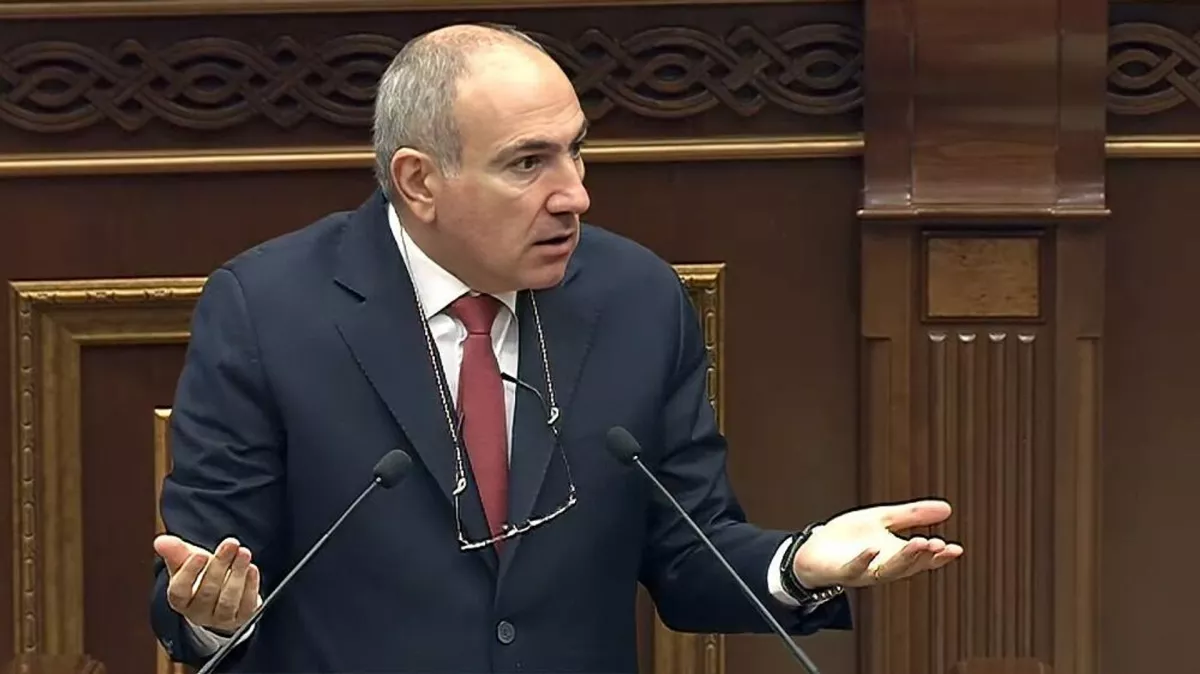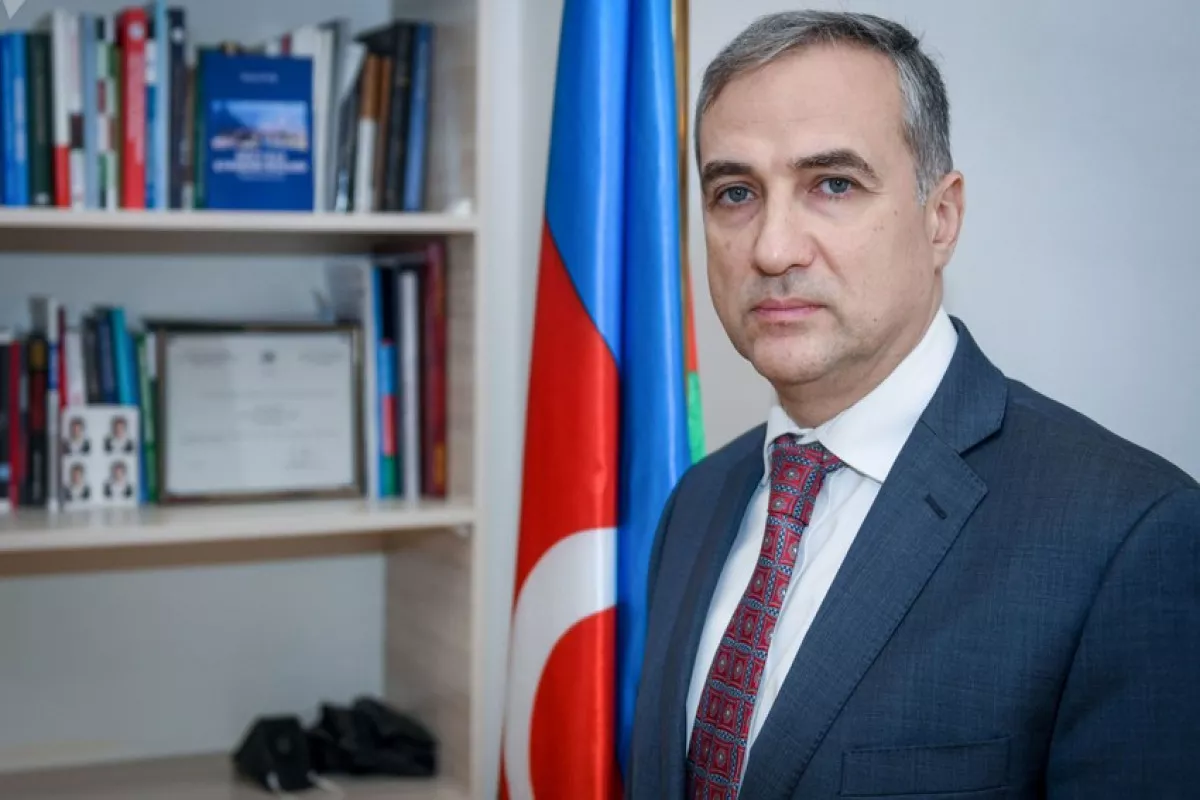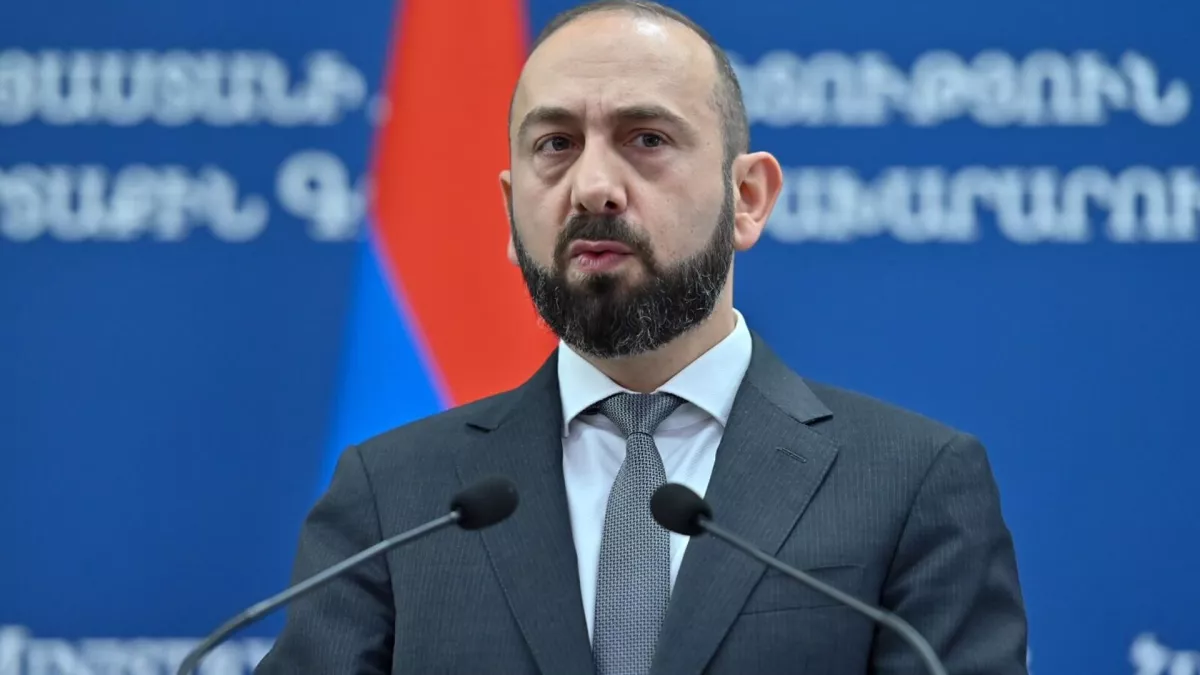Pashinyan’s bluff: Armenia masks its anti-Azerbaijan claims Constructive talk or calculated deception?
The speech by Armenian Prime Minister Nikol Pashinyan in the National Assembly on April 15 was filled with so-called “constructive” statements. Yet again, Armenia has demonstrated its inability to reach an agreement, hiding behind peace-loving rhetoric.
Alongside the proposal to dissolve the OSCE Minsk Group and sign a peace treaty with Baku, Pashinyan linked this to the issue of whether Armenia’s Constitution contains territorial claims against Azerbaijan, insisting that it does not. Moreover, he not only rejected accusations against Yerevan, but also tried to deflect blame by alleging that territorial claims are instead “enshrined” in Azerbaijan’s Constitution. In this way, the Armenian side not only evaded responsibility, but also levelled counter-accusations, attempting to drag Baku into a new round of political bargaining.

"If the issue with our Constitution is not a pretext but a genuine concern for Azerbaijan, then the most productive way to address this concern is by signing an agreement, not the opposite," Pashinyan stated, essentially putting forward new conditions for concluding peace with Baku.
What kind of new game is Pashinyan playing around Armenia’s Constitution, the dissolution of the Minsk Group, and the signing of a peace treaty? A Caliber.Az correspondent posed this question to Azerbaijani and Russian political analysts.
Azerbaijani political analyst, Chairman of the Centre of Analysis of International Relations (AIR Centre), and diplomat Farid Shafiyev believes that Yerevan is once again playing games and trying to mislead everyone.

"One might wonder—why go far afield when there is international experience with constitutional reform under similar circumstances? Take Ireland, for example, where a referendum was held as part of conflict resolution efforts. It’s important to note, however, that in the Irish case, the obligation to hold a referendum was clearly stated in the peace agreement, and the country held it within a month after the document was signed. In the draft peace treaty with Armenia, no such clause exists, because the Armenian side firmly resisted any such amendments.
As for the Minsk Group, Pashinyan and his entourage often stress the need for consensus to officially dissolve it. But if we recall, it wasn’t just Armenia that opposed the dissolution of the OSCE Minsk Group—France did as well, along with the Biden administration in the United States.
It is entirely possible that if the issue of dissolving the Minsk Group is raised again, the Armenian side and its allies will simply block the decision once more, citing a lack of consensus. This is a typical political game.
I’ve said this before in an interview with Caliber.Az: all of this is being done with an eye on the future. The Armenian leadership wants to keep ‘reserves’—mechanisms and institutions they can return to in 10–20 years to once again raise issues that are important to them.
As long as the Minsk Group exists—even if it is de facto inactive—it will be perceived as a structure dealing with a ‘continuing conflict.’
The same goes for the Armenian Constitution: as long as it contains provisions that can be interpreted as territorial claims, it remains a potential pretext for further speculation and pressure,” Shafiyev concluded.

Russian political analyst Vladislav Gerdin believes that all signs point to Yerevan launching a new strategy—one in which Armenia agrees to some of Azerbaijan’s conditions while refusing to accept others, which are even more significant.
“It’s not surprising that Yerevan has given its consent—albeit only verbal so far—to the dissolution of the OSCE Minsk Group. In essence, it’s a defunct structure that has practically lost its relevance. Moreover, Baku refuses to recognise it as a constructive entity—this is a clear and unwavering demand from Azerbaijan.
That’s why Pashinyan chose not to cling to it or argue with Baku—why provoke Azerbaijan’s obvious irritation when nothing more can be extracted from the situation, so to speak? But when it comes to the issue of a referendum and Armenia’s Constitution, Pashinyan decided to play a different game, engaging in what is virtually open bargaining. He calls on Baku to sign a peace treaty and an agreement to dissolve the Minsk Group, while turning a blind eye to the presence of territorial claims in Armenia’s Constitution and pretending this problem doesn’t exist at all.

This tactic was recently demonstrated by Foreign Minister Ararat Mirzoyan as well, when he proposed accelerating negotiations on the opening of the Turkish-Armenian border. According to Mirzoyan, this step would positively impact the process of signing a peace treaty with Azerbaijan.
Yet another clear instance of bargaining—a bid to tie Armenia’s interests to Azerbaijan’s in a single package deal. I believe Prime Minister Pashinyan understands that such a bluff is unlikely to work.
Baku has repeatedly proven that it cannot be pressured through dares or provocations, and this stance remains firm. Nonetheless, Pashinyan is once again trying to play on contradictions, attempting to extract some kind of advantage for himself in this game. At worst, he can always backtrack later using his tried-and-tested tactics,” Gerdin concluded.








